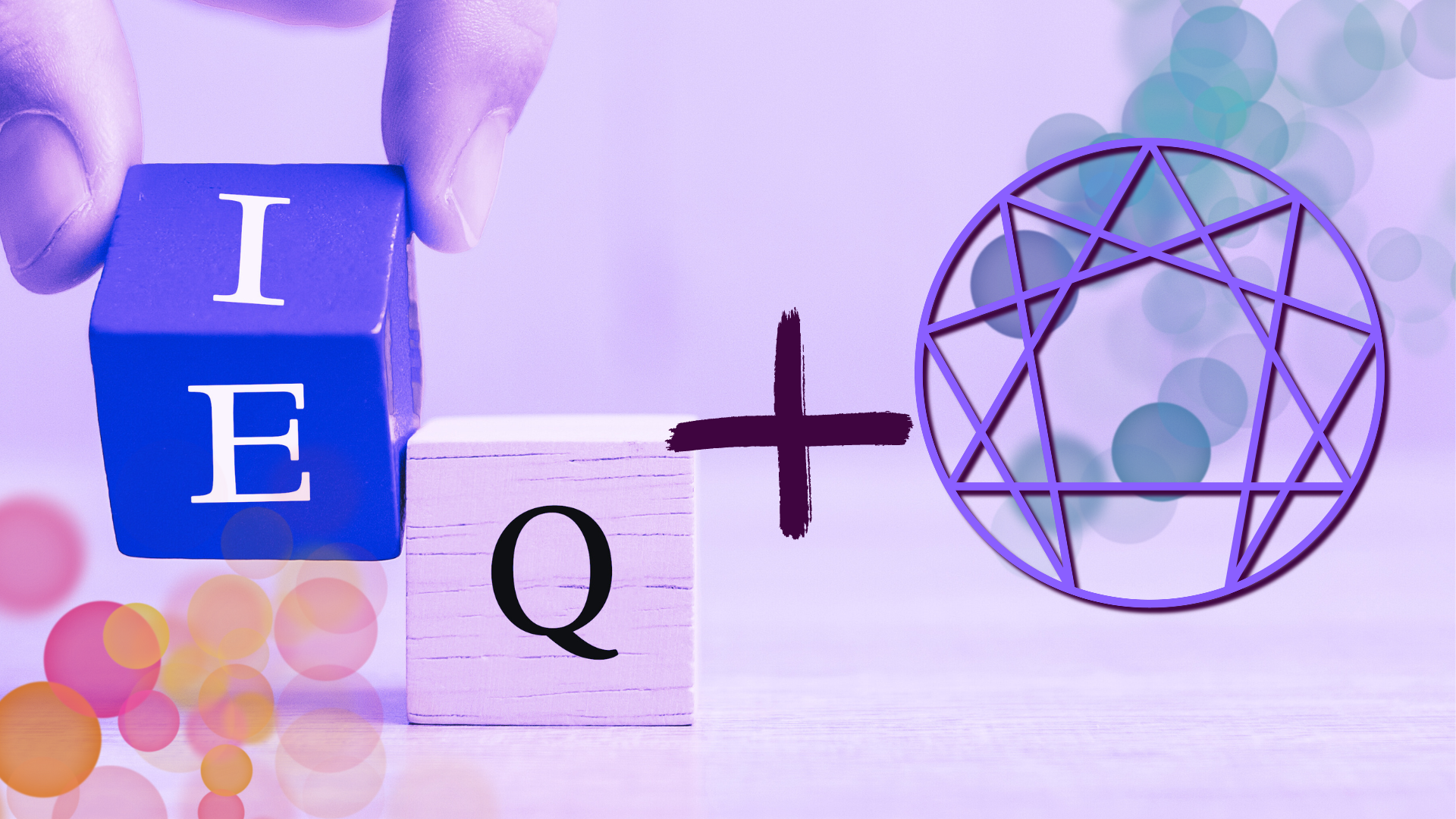Emotions don’t belong at work.
Emotions make you weak.
Emotions are useless in decisions.
Showing emotions is unprofessional.
You either have emotional intelligence, or you don’t.
Emotions make you less productive.
Emotions are for the HR department, not leaders.
LIES — every single one. But you’ve heard them all, right?

Don’t get me wrong. Emotions are challenging and messy, and this Enneagram Seven would like to avoid discomfort by running the other way (preferably to something with sprinkles and laughter.)
I know I’m not alone. Nearly every leader I talk to comes back to the question, “How do I handle emotions at work?” We all want to figure that out.
I’ve learned through the discomfort and the jumble of emotions this leadership truth:
Emotional intelligence produces healthy and effective leadership.
Leaders who practice emotional intelligence and emotional regulations improve both their actions and business results, as well as the outcomes from the entire team, according to NIH.
Brené Brown teaches we cannot “selectively numb.” So in order to experience the joy we talked about as the keystone of healthy culture, as well as happiness and excitement and fascination and wonder, we have to be willing to feel rejected and miserable and jealous and inadequate at times.
Ugh. This is such an inconvenient reality!
I’m continually practicing emotional intelligence as a leader. And it has everything to do with my Enneagram type. And you too, my friend.
Your personality will absolutely hijack your emotional intelligence and your leadership…if you let it.
(If you’re new to the Enneagram, this is a personality framework that helps you understand why you think, act, and feel the way you do.)

The Emotional Struggle That Will Hijack Your Leadership
So here is the emotional struggle each Enneagram type needs to scan for.
Enneagram Eight: Anger Only
You’re really comfortable with anger (the other types could learn from this!) You will use anger to maintain control and to cover emotions that feel tender or exposing. This will leave you vulnerable to hasty decisions and ineffective leadership.
Enneagram Nine: Muted Emotions
Your emotional volume is way low. While that unflappable stance can be helpful when others are flailing, it keeps you disconnected and others unsure of how to follow you.
Enneagram One: Simmering Resentment
Repressed anger and buried shame are always on low heat, stewing in your life. In your amazing desire for improvement, you fall to resentment because it’s never perfect, and you can’t fix it all.
Enneagram Two: Misplaced Empathy
You are great at feeling everyone else’s emotions, which creates powerful connections with people. But you often feel the other person’s emotions and neglect to process your own, leaving you prone to people-pleasing decision-making.
Enneagram Three: Glossed Shame
The winner in you covers the shame you want to avoid. So, while you are amazing at outlining the way to a goal, you gloss over emotions because they feel like inefficient barriers. But that keeps you ineffective as a leader.
Enneagram Four: Cranked Up Emotions
You are highly aware of your emotions and comfortable with others’ emotions. But when you make emotions bigger and more intense, you stay stuck in an emotional swirl. It’s hard to move to action and to allow space for anyone else’s authentic emotions.
Enneagram Five: Emotional Scrooge
You are the clutch player when dispassionate analysis is needed. However, when you observe emotions from a safe distance, you become detached, diminishing your ability to connect with others in real time, preventing you from getting important data and leading effectively.
Enneagram Six: Unrelenting Angst
When it’s time to troubleshoot, we’re coming to you. But emotionally, your tendency toward worst-case-scenario thinking keeps you emotionally reactive. Others will dismiss your insights over time because “everything’s a fire.”
Enneagram Seven: Toxic Positivity
Finding the silver lining is your specialty. But because you don’t want emotions that feel uncomfortable or painful, you can reject those real emotions in yourself and others. This creates distrust and even toxicity.
How to Improve Your Emotional Intelligence
Regardless of your Enneagram type, this simple practice of NAME>RATE>FIND helps you regulate your own emotions and improves your emotional intelligence.
Name:
Accurately name your emotions. Feeling frustrated is different than feeling foolish or inadequate. Labeling your emotions (plural because you’re usually feeling more than one at the same time) begins the process of regulation. So you’re in charge, not the emotion. I keep this cheat sheet of 135 emotions posted by my desk. Feel free to grab yourself a copy!
Rate:
Identify the intensity. I like a 1 to 10 scale, but some folks like an infrared to ultraviolet scale or traffic light. When you rate your intensity, you can start to choose your next action step with clarity. Feeling angry or at a 10? Probably best not to have that conversation. Feeling forgotten at a 3, calling a friend is easier.
Find:
Locate the emotion in your body. Emotions are chemicals and energy that change the makeup of our very cells, according to Dr. Candece Pert. Your body processes emotions like it absorbs nutrients from food. Locating your emotions in your body connects your emotions, body, and mind, allowing your emotions to begin to move through your body. (Emotional constipation, anyone? No, thank you!)
(Seriously, grab this cheat sheet so you can practice Name>Rate>Find.)
Now What?
As a leader (and a healthy human), you’re responsible for your own personality and emotions that are already a little sloppy. When you put that in the workplace and add others’ personalities and emotions, it can feel like a mud wrestling match. That’s why the sterile space of “no emotions” feels safer; except that keeps you stuck in other inefficiencies, exposed to poor decision-making, and costs you joy at work.
But it doesn’t have to be like that. I can help you bring a wealth of emotional intelligence to your team so you can make better decisions, improve your collaboration, and simply have better relationships with each other. Let’s chat about how.

COMMENTs:
0